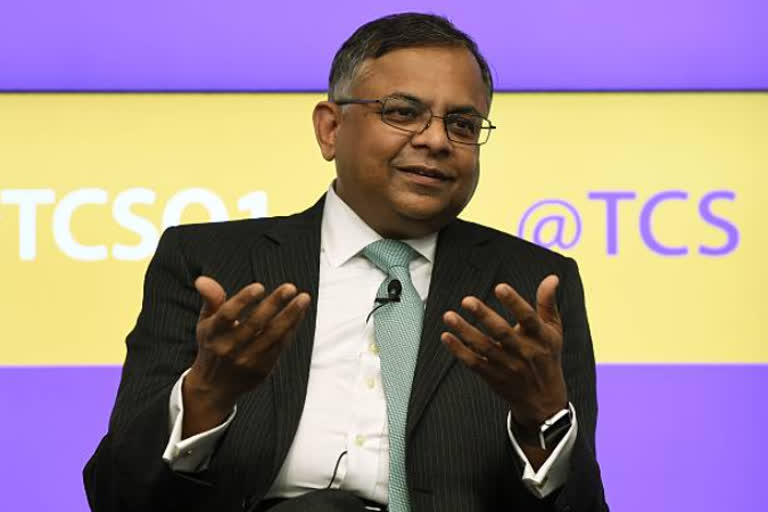Mumbai: Tata Sons Chairman N Chandrasekaran on Thursday said the world's dependency on China as the single sourcing market will reduce in the post-coronavirus future, which presents an opportunity for India.
Speaking at the USD 110-billion group's cash cow TCS' annual general meeting the first shareholder meet to be conducted virtually because of the COVID-19 crisis Chandrasekaran said the technology world is moving to work from home (WFH) and the country's largest software exporter will also follow the trend.
The coronavirus pandemic, which originated in China, has forced companies the world over to rethink their reliance on the Chinese supply chain. Simultaneously, the constant flaring up of trade tensions has also meant that the world cannot depend on a single market.
"The opportunity does exist (for India). It is not only a question of a shift, but that of dependency on a single market which will reduce. India will definitely have an opportunity to participate," Chandrasekaran said, replying to a shareholder query.
He added that TCS has presence in China along with 50 other countries and uses its employees there for both domestic projects and also to deliver work globally.
With many shareholders keen to know about the benefits of working from home, Chandrasekaran said at present it is about expenditure in making the shift. He also made it clear that the post-coronavirus future will see a larger number of people working from home.
Read more: 'One-time cash transfer, basic food supplies for 3 months can help tackle labour migration problem'
Replying to queries centred on media reports of only 25 per cent of employees working from its offices, he called it a "guesstimate", saying a specific number cannot be given, but directionally, it is clear that the staff's reliance on working from development centres will reduce.
"We are seeing this as a trend and making significant investments," he said, adding it is not just about connectivity and computer peripherals, but also about ensuring that all the necessary protocols on the security front are followed.
There was also a revenue loss because of the shift and the same has been absorbed in the March quarter, he said.
In his presentation to shareholders earlier, TCS Chief Executive Officer and Managing Director Rajesh Gopinathan said 96 per cent of the over 4.5 lakh employees of the company are now working from home and the productivity, both from deadlines and quality perspective, has not been impacted.
Chandrasekaran said over the last few months since the onset of the crisis, the company has moved all its engagement processes with employees and shareholders online. It is also conducting virtual townhalls and off-sites for employees.
On the business front, he said the last two months have seen intense deal negotiations and closures as well, but declined to give a clear answer on pricing power.
Its largest revenue segment of banking, financial services and insurance (BFSI) is doing "fine" with lots of deals and negotiations over the last two months, and the company does not anticipate any shock from that segment, Chandrasekaran said.
He said the healthcare and pharma segment, where TCS has a presence, will grow in the current period.
Replying to queries on acquisitions, he said the company will be very selective and will not acquire only for expanding its revenue. Synergies are very important while assessing a deal, he added.
From a domestic perspective, he said the contraction in GDP growth will not impact its turnover because of the low reliance on revenues from India. Only up to 2 per cent of BFSI revenues comes from India, he noted.
He said TCS has not invested in any electoral bonds in FY20 and the investments were done only in the previous fiscal year.
On the COVID-19 relief front, Chandrasekaran said TCS has built a hospital in Kerala and installed beds and wards in hospitals in Mumbai, adding that lack of land means it cannot build a new facility in the financial capital.
The TCS scrip closed 1.92 per cent down at Rs 2,067.80 apiece on the BSE, as against a correction of 2.07 per cent on the benchmark.
(PTI Report)



